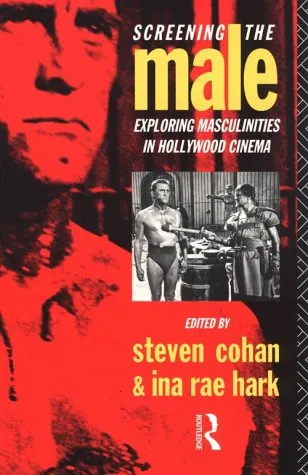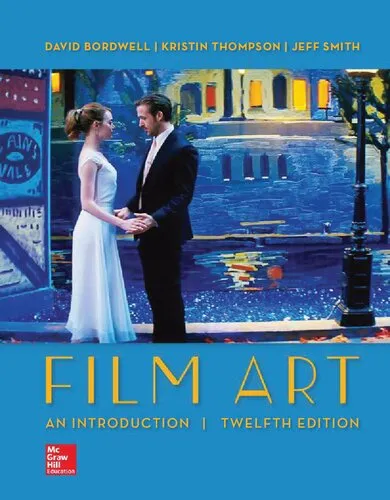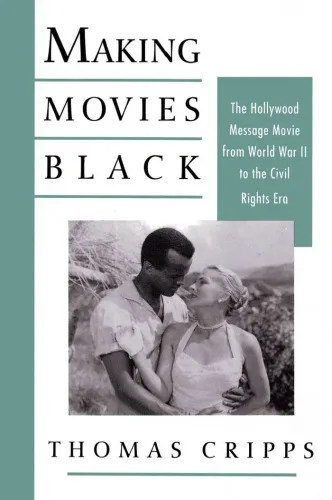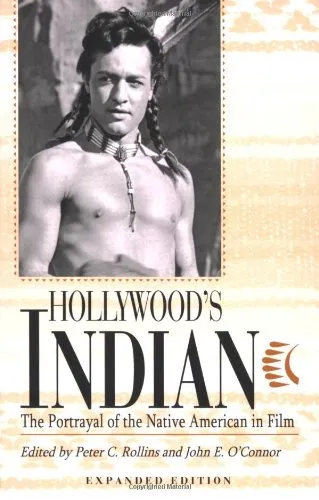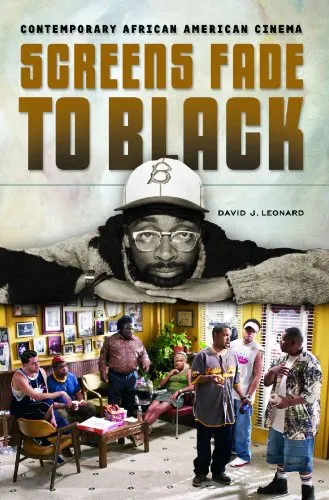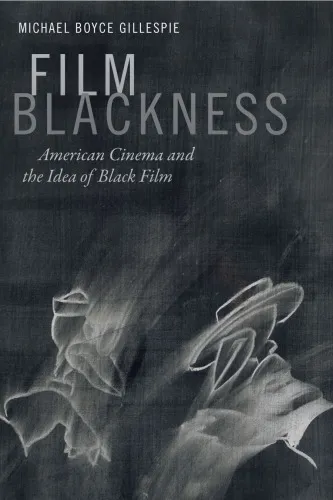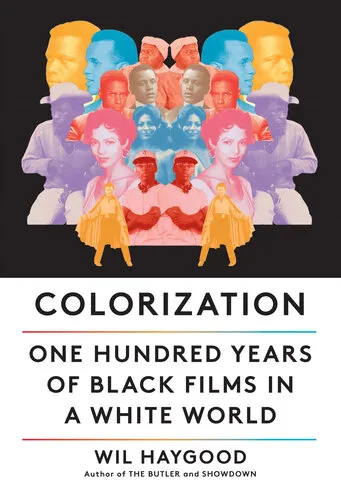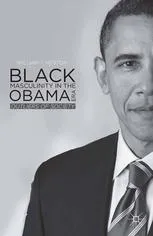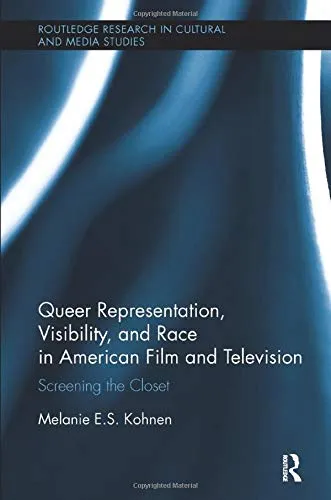Screening the Male: Exploring Masculinities in the Hollywood Cinema
4.0
بر اساس نظر کاربران

شما میتونید سوالاتتون در باره کتاب رو از هوش مصنوعیش بعد از ورود بپرسید
هر دانلود یا پرسش از هوش مصنوعی 2 امتیاز لازم دارد، برای بدست آوردن امتیاز رایگان، به صفحه ی راهنمای امتیازات سر بزنید و یک سری کار ارزشمند انجام بدینکتاب های مرتبط:
خلاصه تحلیلی کتاب
کتاب Screening the Male: Exploring Masculinities in the Hollywood Cinema اثری پژوهشی است که با رویکردی چندوجهی به بازنمایی مردانگی در آثار شاخص سینمای هالیوود میپردازد. نویسنده و پژوهشگران همکار در این کتاب، از نظریههای فرهنگی، تحلیل روایت، و تاریخ سینما بهره گرفتهاند تا نشان دهند چگونه مردانگی در بستر تغییرات اجتماعی و فرهنگی شکل میگیرد و بازتولید میشود.
این اثر ترکیبی از تحلیلهای متنی و زمینهای است. همچنین توجه ویژهای به نقش ساختارهای قدرت، ایدئولوژی و بینامتنیت دارد. کتاب به فیلمهایی از دورههای مختلف، از دوران طلایی هالیوود گرفته تا نمونههای معاصر، میپردازد و بررسی میکند که این فیلمها چگونه تصویر مرد را، به عنوان یک «سوژه» فرهنگی، بازآفرینی و تثبیت میکنند.
مطالعه این کتاب برای کسانی که به حوزه مطالعات سینمایی و نظریه جنسیت علاقهمندند، یک منبع بیبدیل است؛ چرا که نهتنها چارچوبهای نظری را توضیح میدهد، بلکه نمونههای عملی و تحلیلی عمیقی را نیز برای فهم بهتر مفاهیم ارائه میکند.
نکات کلیدی و کاربردی
کتاب با برجستهکردن مفاهیمی همچون «مردانگی مسلط» و «مردانگی حاشیهای»، نشان میدهد که چگونه سینما بهعنوان یک صنعت فرهنگی، مدلهای مختلف مردانگی را خلق و بازتولید میکند. این رویکرد به پژوهشگر کمک میکند تا دیدی انتقادی نسبت به فیلمها و روایتهای آنها کسب کند.
یکی دیگر از نکات کلیدی کتاب، تحلیل رابطه میان جنسیت و ژانر سینمایی است؛ برای مثال، مردانگی در فیلمهای وسترن یا اکشن با الگوهایی متفاوت از مردانگی در ملودرامها یا کمدیها به تصویر کشیده میشود. این تفاوتها خود نشاندهنده پیوند عمیق میان روایت، شخصیتپردازی و گفتمان فرهنگی هستند.
کتاب همچنین تاکید دارد که فهم مردانگی در سینما تنها از طریق دیدن فیلم کافی نیست؛ بلکه نیازمند توجه به زمینههای تاریخی، اجتماعی و تولیدی است که هر فیلم در آن ساخته شده است.
نقلقولهای ماندگار
در طول کتاب، جملاتی وجود دارند که نهتنها بازتابدهنده زاویه دید نویسندگان نسبت به مردانگی هستند بلکه ارزش تحلیلی و الهامبخش دارند.
مردانگی در سینما نه یک واقعیت ثابت، بلکه فرایندی پر از تغییر و مذاکره است. نامشخص
هر تصویر مردانه بر پرده، بازتابی از نبردهای فرهنگی بر سر معنا و هویت است. نامشخص
چرا این کتاب اهمیت دارد
اهمیت کتاب در این است که بهصورت روشمند به نقد تصویر مردانگی در رسانه پرنفوذی چون سینما میپردازد. این نقد نهتنها در مطالعات دانشگاهی ارزشمند است، بلکه در حوزههای فرهنگی دیگر، از جمله تولید محتوا و نقد فیلم، راهگشا محسوب میشود.
با توجه به قدرت سینما در شکلدادن به تصورات اجتماعی، این کتاب به خواننده کمک میکند تا ببیند چگونه این صنعت با ساختن قهرمانها، ضدقهرمانها و شخصیتهای پیچیده مردانه، به پیوند میان ایدئولوژی و سرگرمی شکل میدهد.
در دنیای امروز، که بازنمایی جنسیت و هویت به مسائل کلیدی در علوم انسانی و هنر بدل شده، چنین کتابی میتواند پایهای برای پژوهشهای بیشتر و نقدهای ژرفتر باشد.
نتیجهگیری الهامبخش
کتاب Screening the Male: Exploring Masculinities in the Hollywood Cinema راهی باز میکند تا خوانندگان با چشمانی تازه به سینما نگاه کنند، مردانگی را نه امری ثابت، بلکه ساخته
Introduction to "Screening the Male: Exploring Masculinities in the Hollywood Cinema"
"Screening the Male: Exploring Masculinities in the Hollywood Cinema" is a seminal work that dives into the intricate relationship between masculinity and Hollywood films. Co-authored by Steven Cohan and Ina Rae Hark, this book delves deep into the ways in which masculinity is both constructed and deconstructed on the silver screen. As the dynamics of gender discourse evolve, Hollywood serves as both a cultural mirror and a creator of dominant ideals. Through its critical approach, the book examines a wide array of films, featuring a blend of classic and contemporary examples to unearth the nuanced portrayals of men in cinema.
The book seeks to challenge traditional perceptions of masculinity, traversing topics like heroism, vulnerability, sexuality, and power. By dissecting the male presence in various genres, from action-packed blockbusters to romantic melodramas, "Screening the Male" extends the conversation beyond clichés, offering readers a richer, more complex understanding of how masculinity operates within Hollywood's storytelling frameworks.
Detailed Summary of the Book
"Screening the Male" opens with an analysis of the foundational paradigms of masculinity that have traditionally shaped Hollywood narratives. These paradigms are often typified by strong, stoic heroes such as cowboys, soldiers, and detectives. The authors contextualize these portrayals within broader cultural, societal, and political ideologies, offering insights into how male characters are expected to embody and project authority, independence, and emotional restraint.
As the book unfolds, Cohan and Hark systematically uncover the complexities and contradictions of masculinity in Hollywood cinema. They explore subversive elements within genres such as screwball comedies, musicals, and film noir, all of which allow alternative narratives of masculinity to emerge. The book also highlights the intersection of race, class, and sexuality with masculinity, revealing how Hollywood addresses—or at times, neglects—these vital layers of representation.
Crucially, the work investigates how modern cinema challenges traditional definitions of the male hero. It draws attention to films that showcase emotionally vulnerable male characters. These films subvert the image of the all-powerful, invincible man, and they invite audiences to consider whether such portrayals resonate more deeply with contemporary masculine identities. Critical case studies, interweaving theory with cinematic analysis, make "Screening the Male" both academically robust and accessible to readers who simply love movies.
Key Takeaways
- Masculinity in Hollywood is a construct, shaped by cultural, historical, and industrial factors.
- Hollywood provides a diverse range of masculine portrayals but often relies on specific archetypes to uphold patriarchal norms.
- Male vulnerability, emotional depth, and alternative expressions of masculinity are gaining greater cinematic visibility over time.
- The intersection of race, sexuality, and masculinity remains a complex and underexplored narrative space within Hollywood.
Famous Quotes from the Book
"Hollywood does not merely reflect masculinity; it plays an active role in its continual reinvention."
"For all the power and strength projected in Hollywood's quintessential 'leading men,' it is their silences and vulnerabilities that are often the most compelling."
Why This Book Matters
"Screening the Male: Exploring Masculinities in the Hollywood Cinema" is a critical text for anyone interested in film studies, gender studies, or cultural studies. While much scholarship has focused on the representation of women in cinema, this book carves out essential space to interrogate the other side of the gender spectrum. It acknowledges that masculinity, like femininity, is a fluid construct perpetually shaped by societal forces.
As filmmakers test the boundaries of “acceptable” masculinity, this book unravels the stereotypes and evaluates their impact on popular culture. From academics to casual fans of cinema, readers of "Screening the Male" will find their understanding of gender representation expanded and enriched. By challenging the audience to rethink old assumptions and recognize the shifting terrain of masculinity in film, Cohan and Hark make a compelling case for why Hollywood is a critical site of cultural discourse.
Ultimately, this book matters because it invites us to interrogate how media shapes—and is shaped by—our collective ideals of what it means to be a man. In doing so, it also opens avenues for more inclusive and diverse portrayals of masculinity that reflect the rich complexity of human identities.
دانلود رایگان مستقیم
شما میتونید سوالاتتون در باره کتاب رو از هوش مصنوعیش بعد از ورود بپرسید
دسترسی به کتابها از طریق پلتفرمهای قانونی و کتابخانههای عمومی نه تنها از حقوق نویسندگان و ناشران حمایت میکند، بلکه به پایداری فرهنگ کتابخوانی نیز کمک میرساند. پیش از دانلود، لحظهای به بررسی این گزینهها فکر کنید.
این کتاب رو در پلتفرم های دیگه ببینید
WorldCat به شما کمک میکنه تا کتاب ها رو در کتابخانه های سراسر دنیا پیدا کنید
امتیازها، نظرات تخصصی و صحبت ها درباره کتاب را در Goodreads ببینید
کتابهای کمیاب یا دست دوم را در AbeBooks پیدا کنید و بخرید
1647
بازدید4.0
امتیاز0
نظر98%
رضایتنظرات:
4.0
بر اساس 0 نظر کاربران
Questions & Answers
Ask questions about this book or help others by answering
No questions yet. Be the first to ask!
